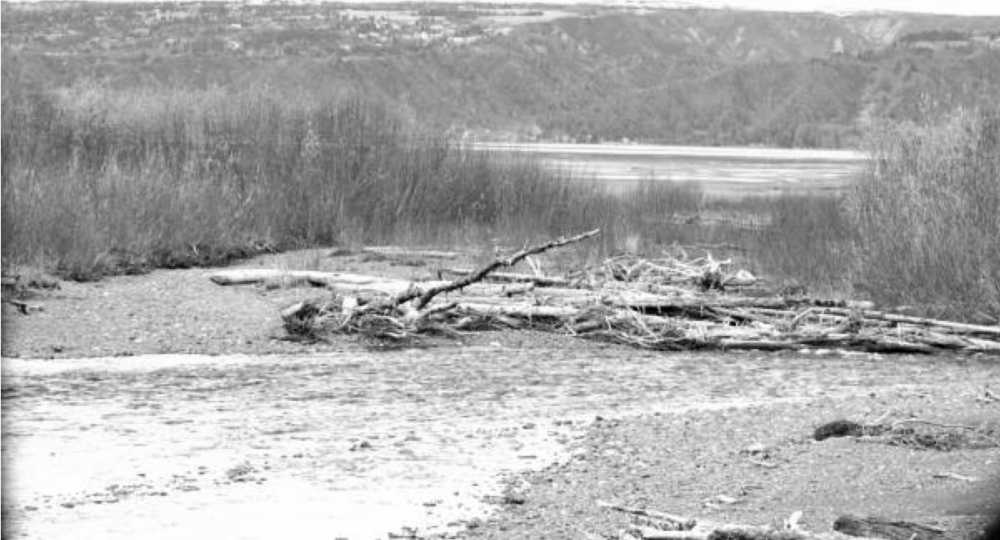HOMER — The Bradley Lake hydroelectric power plant is one step closer to approval for an amendment to the Bradley Lake hydroelectric power plant that would allow the plant to divert water from Battle Creek to Bradley Lake.
The Alaska Energy Authority and the state Department of Fish and Game agreed to the Federal Energy Regulatory Commission’s adjustments to the water flow requirements for the proposed Battle Creek diversion project, according to documents submitted to the Federal Energy Regulatory Commission in late April. AEA and Fish and Game previously came to a consensus on fish and game water flows in August 2015, said AEA Project Manager Bryan Carey.
“Most of the agencies think that the project is a good project,” Carey said.
The proposed Battle Creek project would increase energy output by 10 to 20 percent each year, said Power Plant Production Manager Bob Day. Increasing the energy produced by the Bradley Lake plant would reduce the need for future natural gas supplies, according to a letter dated April 27 from AEA to FERC regarding the project.
The current plans are to intercept the course of the water stream at upper Battle Creek by building a basin to collect water, a settling pond, and a pipe to send the allotted amounts of water to Bradley Lake, Day said. Either way, the water ends up in Kachemak Bay, which is where Battle Creek currently ends. The difference with the diversion project is the water would route through the power plant’s turbines to create energy first.
Once the FERC issues an approval for the project, which Carey said is expected this summer, the next question is a financial one.
“Once we have the amendment, it does not mean we will go forward with it. The utilities will decide to finance it because the utilities pay for Bradley,” Carey said
One of the main points of contention on the Battle Creek project between agencies and the Alaska Energy Association is how changed water flows might affect the fisheries. The flows at Battle Creek are currently monitored by a gauge, Day said. The gauge allows the current water levels at the undisturbed creek to be known at different points during the year before the project starts.
“The fish do come up here out of Kachemak Bay and the agencies want to make sure that we don’t damage or impact that,” said Power Plant Production Manager Bob Day.
Coho and sockeye salmon species were observed in Battle Creek in 2010 and 2011 fish survey seasons, according to a letter submitted to FERC by the National Oceanic and Atmospheric Administration on January 16. Recommended water flow in Battle Creek during the summer were not adequate to protect juvenile life stages of coho salmon in all part of the stream, according to research by the National Marine Fisheries Service.
NMFS recommends that an annual overall 85 percent of the flow at the point of diversion go to Bradley Lake, leaving 15 percent to sustain the salmon population, Carey said. The diversion would begin the late spring and end in the fall as freezing temperatures appear, Carey said.
“NMFS’s recommended minimum instream flows … will provide necessary low velocity summer habitat areas of juvenile coho and fall spawning habitat for adult coho salmon. If implemented these minimum instream flows would avoid, minimize, mitigate, or otherwise offset the adverse effects of this project,” wrote NMFS Alaska Region Administrator James Balsiger in the January 16 letter.
Balsiger also recommended automation of equipment to make flow more precise than with the proposed manually operated head gates on the diversion structure. Carey said that the AEA is considering this recommendation.
Despite these concerns, the Department of Fish and Game agreed that the reduced flows during the summer would benefit the juvenile habitat, since the diversion would prevent fast moving water from moving debris or flushing weak swimming life stages of salmon downstream, according to an April 26 letter submitted to FERC.
Warmer water and a steadier environment in Battle Creek is another potential positive outcome for the fishery, Day said.
“Because it’s the water off the glacier, the water in the lower creek would probably be warmer and in warmer water, fish grow faster and they grow better,” Day said. “
“We’re thinking that like with the lower Bradley River, we’d have some ability to help the flushing or drying out action because we could shut off our conveyance if it was real needy. We can make things more steady for the fish or warmer for the fish.”
Anna Frost can be reached at anna.frost@homernews.com.
• Anna Frost is a reporter with the Homer News. She can be reached at anna.frost@homernews.com

